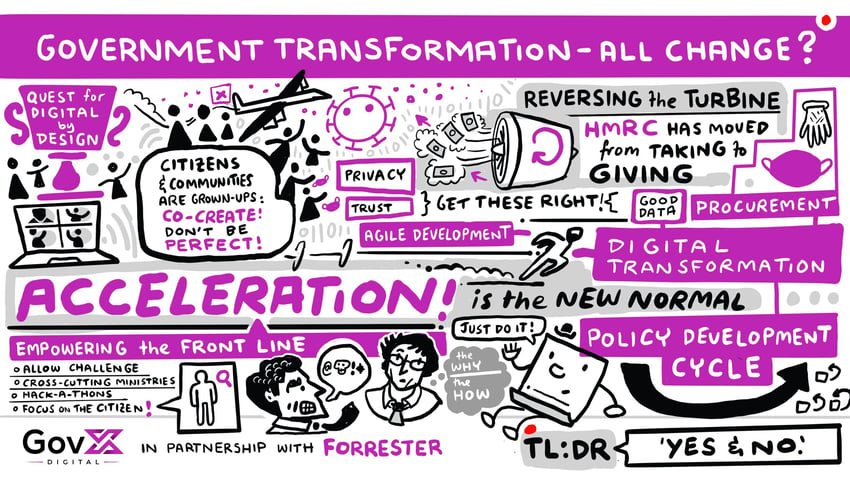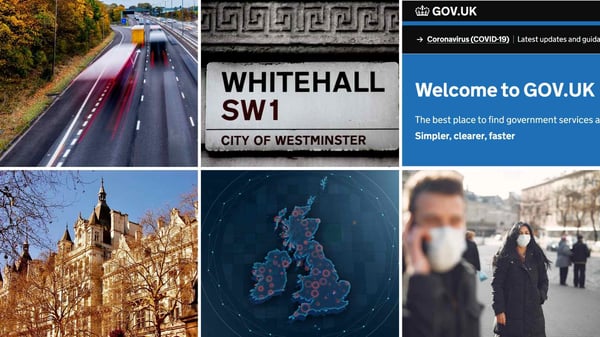What are the foundations of successful Government Transformation?
Culture, skills, processes, policy, data, technology… what levers should government leaders be pulling to deliver effective public sector transformation? Here are the views of the panel in our recent panel discussion ‘Government Transformation: All Change’.

 Lord Francis Maude
Lord Francis Maude
Don't spend a long time working out the perfect plan. Find some things that you can do and make things happen - get momentum, create dynamism, give people permission to do things differently, and empower people at the front line.
In most kinds of Civil Service, there is far too much focus on people who are policy heavy - there's a kind of class divide. There are white-collar, policy-types of civil servants and there are blue-collar people who have to do the implementation, who work in digital, technology, financial, commercial, procurement, property, projects, which are essential to getting things done. And they tend to be kept away from ministers, which is why so many projects go wrong, because the people charged with implementing the policy aren't allowed near the development of policy until it's done.
We know that policy tends to get over-complicated because you refine it constantly, adding greater complexity, all of which makes things more difficult to implement effectively. Whereas if you have the implementation people much closer to where the decisions are made, it’s more likely that they have the chance to push back on things that they can see aren't going to be possible to implement safely or effectively.
 Katrine Winding - Director General, Danish Business Authority
Katrine Winding - Director General, Danish Business Authority
Every time you reorganize or cut through things in a different way, you leave dilemmas. There is no right fit for everyone. One of the things that we've learned with digital systems is that if you have reusable components, shared infrastructure, your data is much easier to sew together and provide a seamless service for the users. They don't care whether it's the tax authority or the business authority, whatever. They just want things to work, go to one place, and have a user-friendly and efficient experience.
Digital fundamentals are crucial. Knowing your data is the next big step for government to allow them to actually make use of all the data that is being produced in our digital systems. In my authority we insist on being innovative, but if you want to be at the forefront of technology and innovation, you must have a strong sense of compliance, data ethics, and transparency in what you do.
We need to be clear how we actually got to this decision, and be clear it's not a decision that the algorithm makes, but it's a decision that we made, with support from data and algorithms.
 Sam Higgins - Principal Analyst, Forrester
Sam Higgins - Principal Analyst, Forrester
Reflecting on my experience in government, there's always fear associated with the dreaded administrative orders and machinery of government changes that inevitably follow a political change. But I think there was always an inherent notion that, if we could somehow build a more adaptable and robust Civil Service and public sector, then that would be less of a problem.
Over time, we've started to see some of that change. The Taiwanese example is a good one and you certainly see in other developed economies this notion of cross-cutting ministries. For example a Minister of Customer Service, or a Minister for Digital - some of these things are not necessarily tied to what we would traditionally think of as government outcomes like health, education or social unity.
Increasingly, there is separation between the machinery of an effective Civil Service versus what the political structures should be, because in the past, they were well aligned. This notion of a flat government where there is more access and frontline staff have a lot more say in the development process of policy and solutions is great. You see that with hackathons and open data and those sorts of things - good examples of the sorts of changes we'll continue to see.








